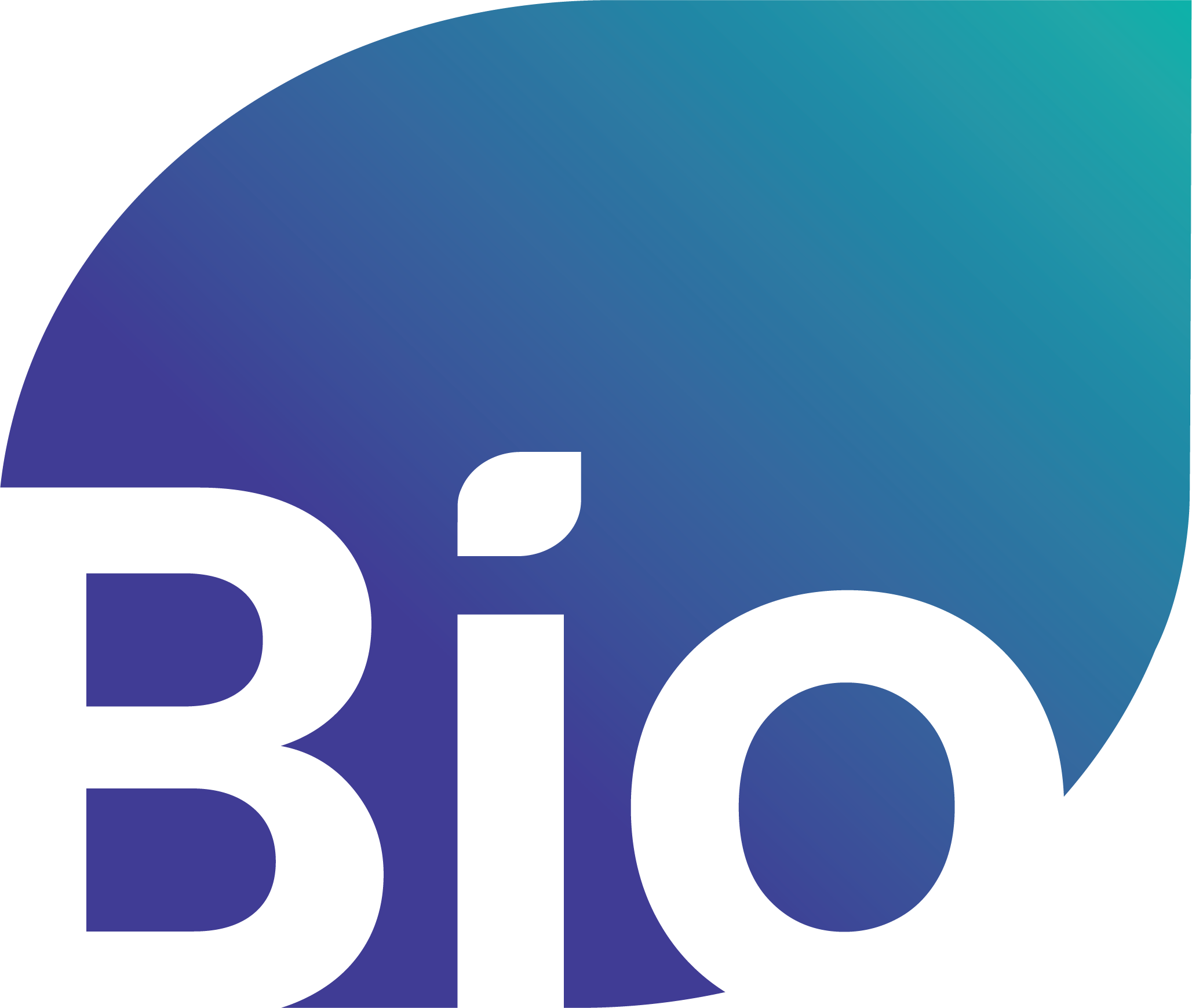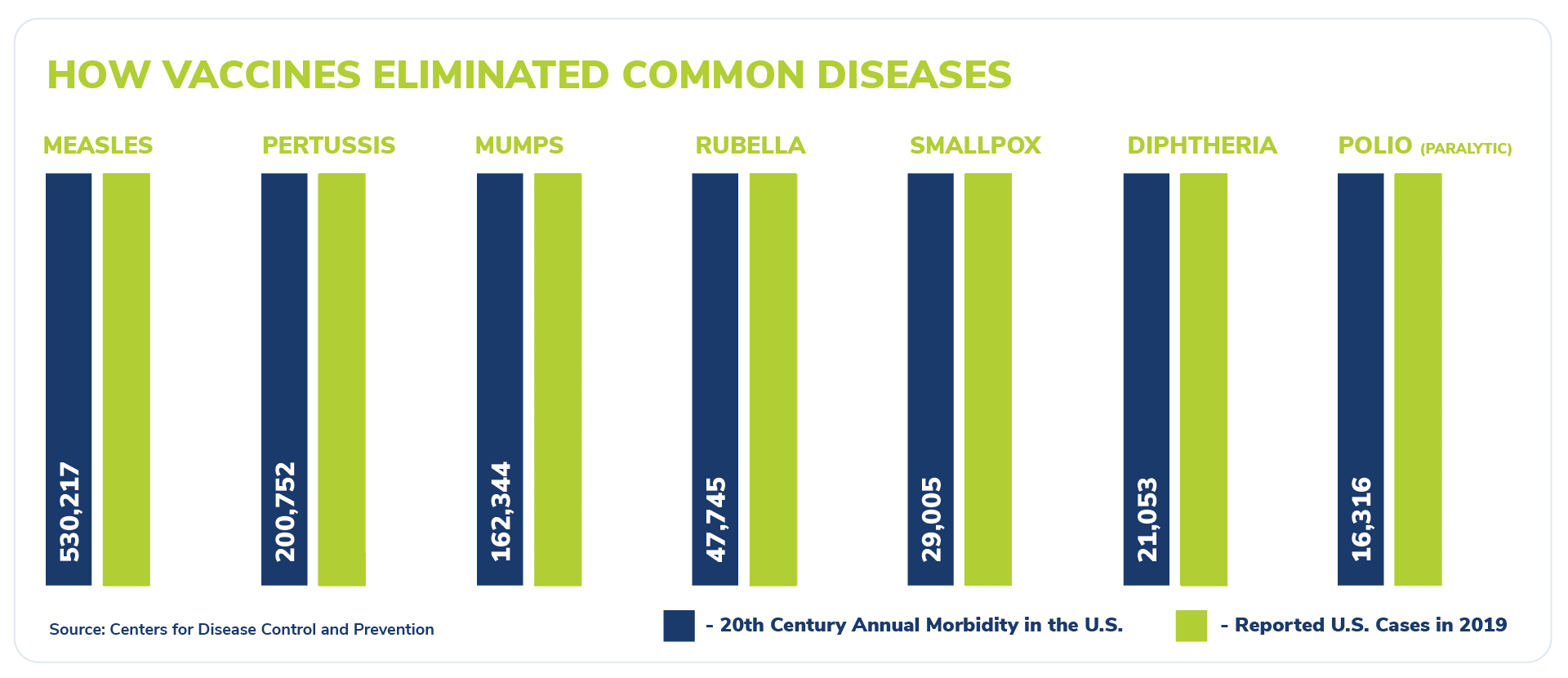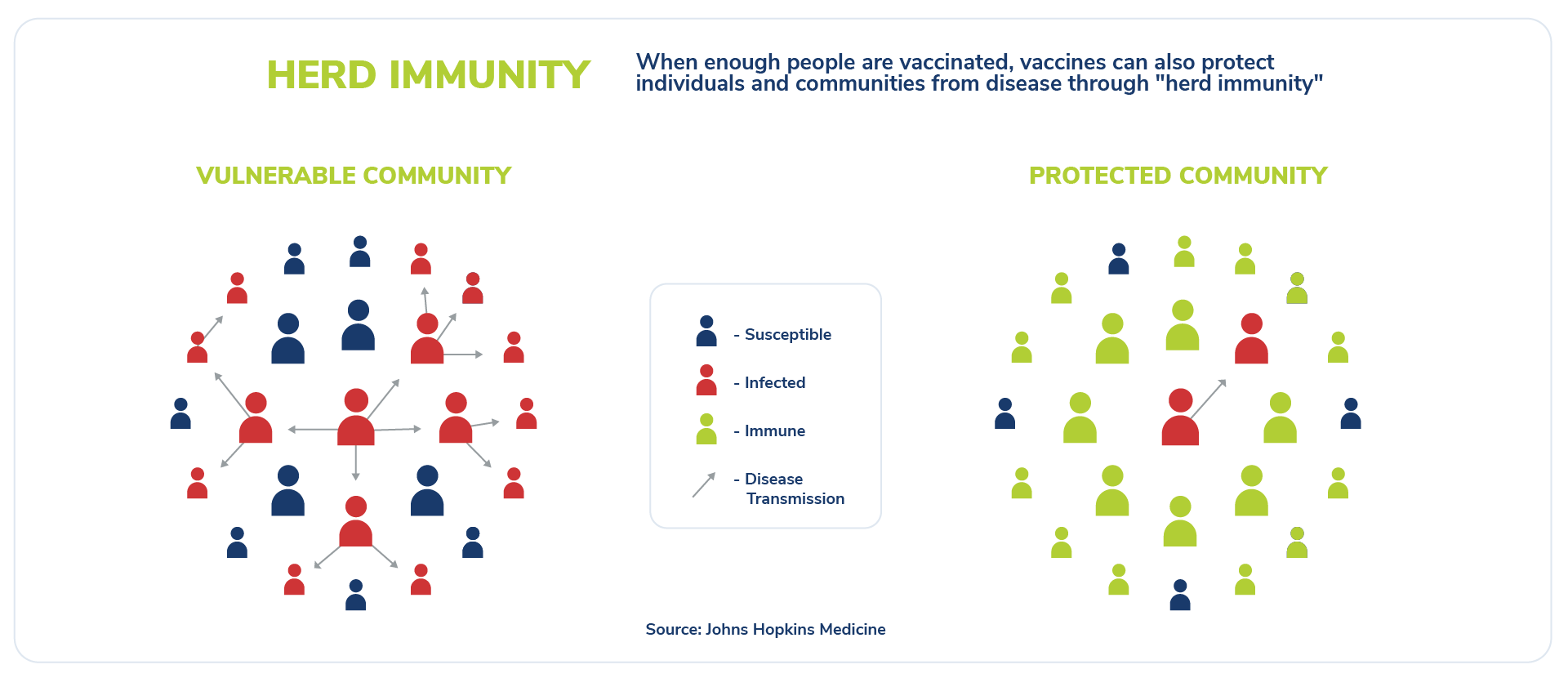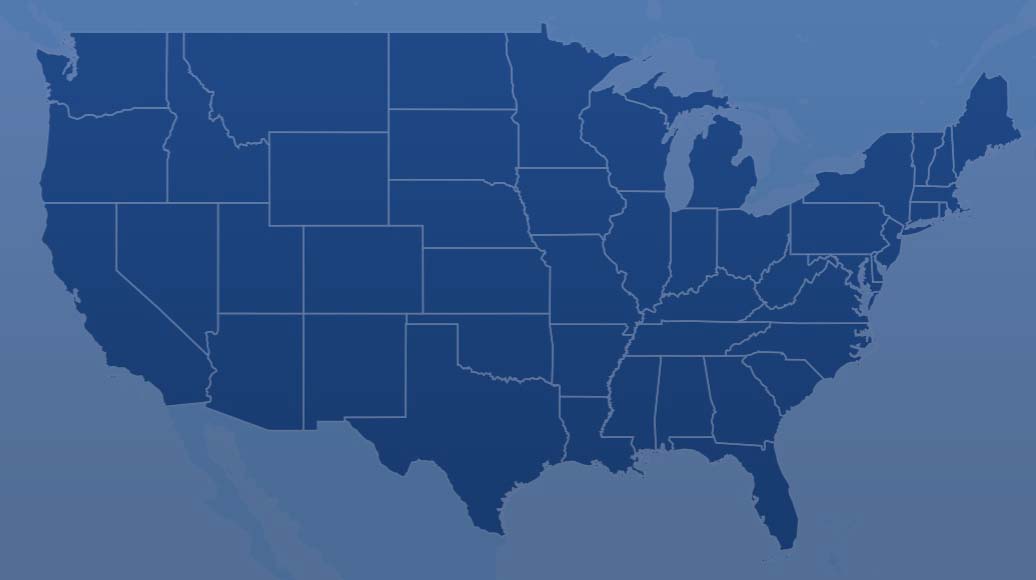- EN
- ES

An official website of the Biotechnology Innovation Organization
Vaccines support our immune system’s complex and robust defense mechanisms. There are many different kinds of vaccines. Typically, vaccines are made up of a partial, weakened, or dead version of a scientist-made germ, bacterium or virus. Preemptively exposing the body to these foreign invaders through a vaccine stimulates our immune system’s natural response to an infectious disease without having to actually live through the disease.
Exposure through a vaccine won’t make you sick, but it will prompt your immune system to “learn” about the virus and build critical defenses that will protect you from contracting the disease in the future. It is possible for you to get sick with a given disease even if you received the recommended vaccination. But if that happens, having received a vaccine will help make sure your symptoms are less severe and the road to recovery is shorter.
After receiving a vaccine, it is possible you may feel tired and worn down. Don’t worry! This is merely a sign your immune system is working as intended and responding appropriately to the vaccine – not that you have contracted the actual disease.
Antibodies
Once administered, vaccines don’t harm your body. Instead, they trigger the production of a vital protein known as an antibody. Antibodies allow the body to quickly identify a foreign invader and then help the immune system shield itself from that threat. The body creates antibodies after recognizing a virus – either through a vaccine or everyday exposure. The difference is that, with a vaccine, your body will have practiced its response to mitigate or prevent unwanted health consequences before you are exposed to the actual virus.
In other words, antibodies are the soldiers guarding your body, protecting it from possible threats.
How vaccines help
By readying the immune system for future health battles, vaccines protect individuals around the world from dangerous diseases.
- It’s estimated that vaccines save 2 to 3 million lives each year globally.
- Vaccines have led to remarkable drops in death and cases of measles, mumps, and polio, among other dangerous diseases.
- Vaccines also played a critical role in eliminating smallpox, which is “one of the most devastating diseases known to humanity” according to the World Health Organization.

Vaccines have led to remarkable drops in cases.
Herd immunity
When enough people are vaccinated, vaccines can also protect communities from diseases through “herd immunity.” Herd immunity – also known as “community immunity” – is achieved when enough people in a given area develop immunity to a disease thereby making further spread unlikely.
In essence, it means the disease has nowhere else to spread. Herd immunity is vitally important to protect individuals, like those with compromised immune systems and those who are too young to be vaccinated.

Vaccines can protect communities from diseases through “herd immunity.”
Our communities and families benefit
By helping to keep people healthy and out of hospitals, vaccines also save our nation billions of dollars – both directly and indirectly.
Example A: Influenza (the flu)
- It’s estimated that the flu costs $3.2 billion each year in direct health care expenses. That’s on top of 20.1 million workdays and $8 billion in lost productivity annually.
- These costs would be far greater without a flu vaccine. In fact, according to the CDC, the flu vaccine is attributed to “reduced deaths, intensive care unit (ICU) admissions, ICU length of stay, and overall duration of hospitalization.”
Example B: Measles
- Measles outbreaks can cost public health departments close to $10,000 daily in identifying exposed persons and containing further disease spread, according to University of California at Berkeley researchers.
- The vaccine for measles, mumps, and rubella (MMR) is highly effective at preventing measles. According to CDC data, the recommended two doses of the MMR vaccine is roughly 97 percent effective at preventing measles.
Simply put: Vaccines save lives, help protect our families and communities, and rein in unwanted public health spending.


